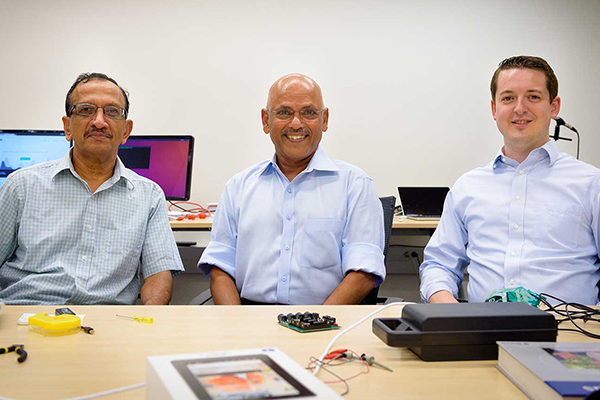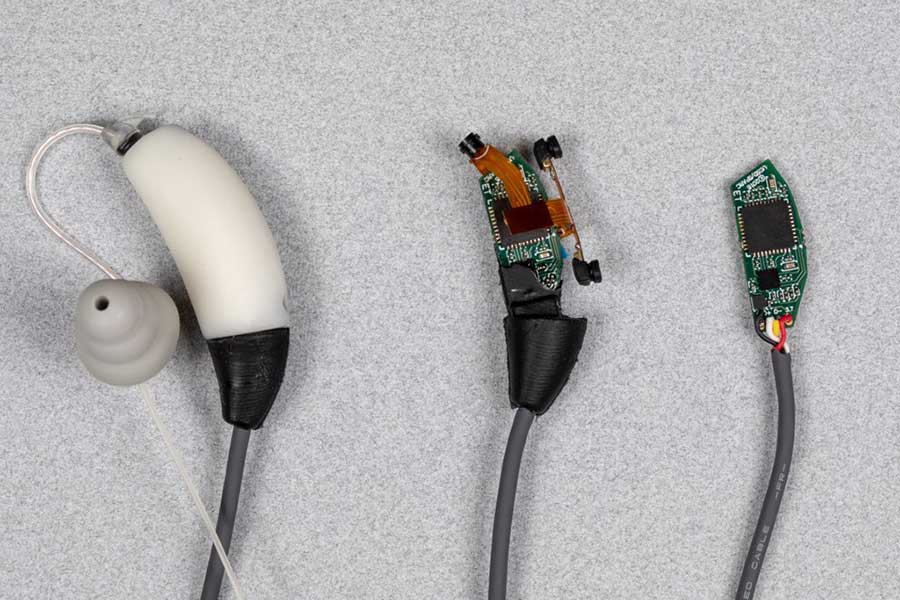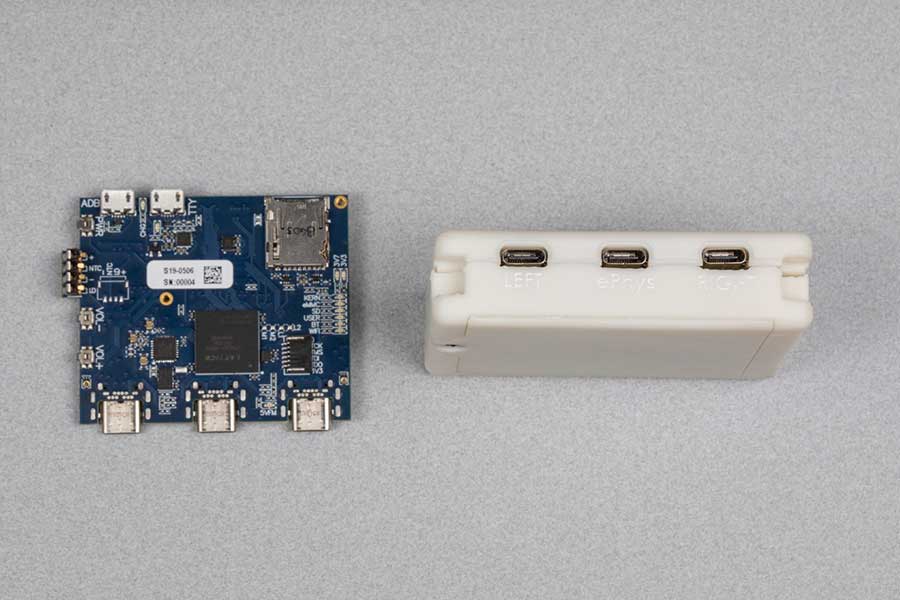Gift to Support Research into Links between Hearing Loss, Isolation and Dementia
By Katie Ismael

From developing the first portable cell phone technology to establishing the first cell phone service to meet the needs of seniors, wireless technology pioneers Arlene Harris and Martin Cooper have always innovated technology and technology-enabled solutions to connect and serve people around the globe.
The pair continues their mission to use technology to help improve quality of life with a generous gift to UC San Diego through their foundation, Wrethinking, the Foundation, to study the links between the social and physical isolation associated with hearing loss and dementia.
Technology to improve hearing aids and strengthen social interactions
With a price tag in the thousands of dollars and limited to no coverage by insurance providers, effective hearing aids are out of reach for many people. As a result, they may avoid social situations with family and friends. An increasing body of research points to possible links between the loneliness that stems from hearing loss-related isolation and cognitive decline.
The gift supports the expansion of The Open Speech Platform (OSP), a project led by Qualcomm Institute research scientist Harinath Garudadri that offers a suite of open-source technologies to hearing health researchers, giving them the ability to share findings and spur innovation through collaboration. The OSP is supported by the Qualcomm Institute, the National Science Foundation and the National Institutes of Health.
With Harris and Cooper’s support, Garudadri and his team are extending OSP hardware tools including the processors, microphones and motion sensors as well as a full stack software including innovative signal processing algorithms to help doctors and scientists quantify a patient’s verbal interactions and physical activities during daily living. The result is the recently launched Project Psi-Fi that builds upon OSP for an integrated physiological and psychological health benefit to patients. Psi-Fi is now also funded by the National Science Foundation and the National Institutes of Health.
“There isn’t a platform that currently enables researchers from different disciplines to study what we call multifactor ailments—ailments that often have more than one cause,” Garudadri said. “Project Psi-Fi will build on our work with OSP to look at physical activity, as well as sensory, motor (physical) and cognitive impairments, independently and in combination with one another. That by itself is an engineering accomplishment.”
A multi-disciplinary research approach
Project Psi-Fi is a collaboration between researchers across UC San Diego, including doctors and specialists at the School of Medicine, as well as data scientists and engineers with the Halıcıoğlu Data Science Institute and the Jacobs School of Engineering.
Significant among these collaborations is joint work with Rajesh Gupta, a Distinguished Professor of Computer Science and Engineering and director of UC San Diego’s Halıcıoğlu Data Science Institute (HDSI).

“The OSP opened up a new programming platform for the researchers to devise new algorithms and embedded software such as unikernels to experiment with ways to adapt hearing aid to individual needs. Psi-Fi vastly improves the platform to enable dynamic feedback and adaptation to physiological and cognitive needs in changing environments,” Gupta said.
“What’s really wonderful about this project is it is an outstanding example of finding ways to take breakthroughs in one field, say the processors that run our smartphones, and use them to advance another field and help many people in the process.” said Ramesh Rao, director of the Qualcomm Institute. “It’s also important to note the cross-disciplinary nature of this project, which is why it is very much at home within the research and engineering communities at UC San Diego.”
Dr. Eric Granholm, a professor of psychiatry at the School of Medicine, said, “There is emerging evidence that hearing loss may contribute to limited social interactions, reduced physical activity and ensuing perception of loneliness—a risk factor for Alzheimer’s and other cognitive disorders. Yet, assessment of social activity and perceived loneliness is challenging, as retrospective self-reports are not accurate. OSP would provide new objective metrics to monitor the amount and quality of social interactions and perceived loneliness using ecological momentary assessments.”
“This collaboration between Qualcomm Institute, the School of Medicine and HDSI will build a talent pool of students and researchers for a new generation of devices, software, machine learning algorithms and clinical protocols that vastly improve quality of life,” said Gupta.
This gift contributes to the Campaign for UC San Diego—a university-wide comprehensive fundraising effort concluding in 2022. Together with philanthropic partners, UC San Diego will continue its nontraditional path toward revolutionary ideas, unexpected answers, lifesaving discoveries and planet-changing impact. To learn more, visit the Campaign for UC San Diego website.

Media Contacts
Alicia Clarke
(858) 822-5825
amclarke@eng.ucsd.edu

